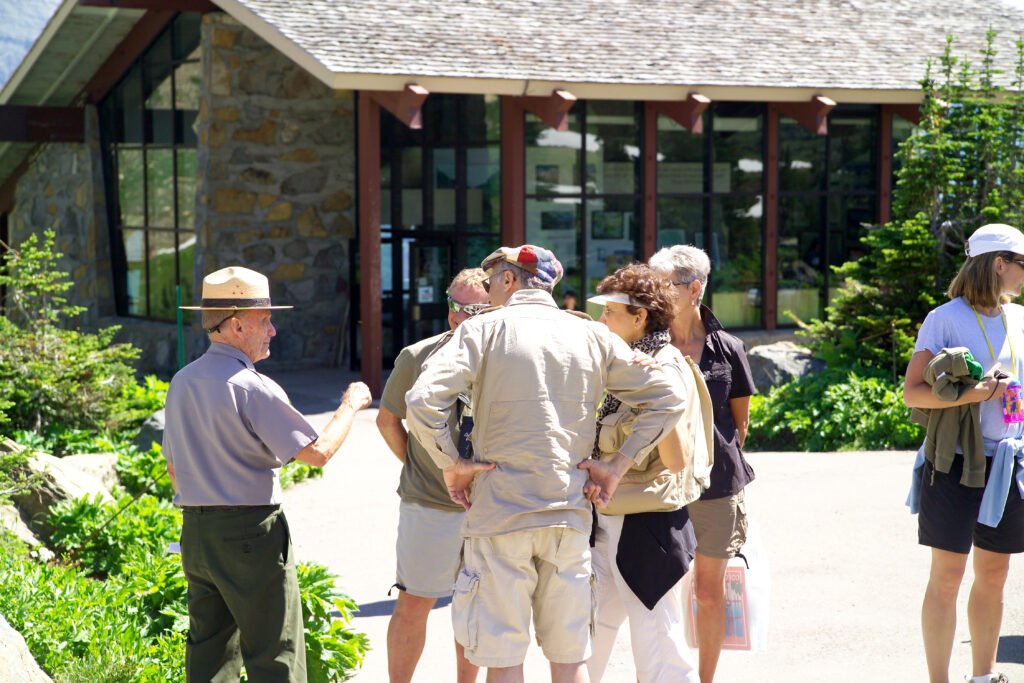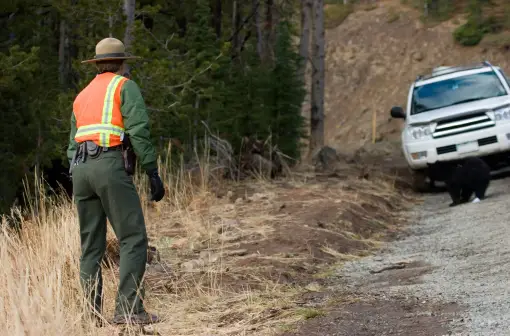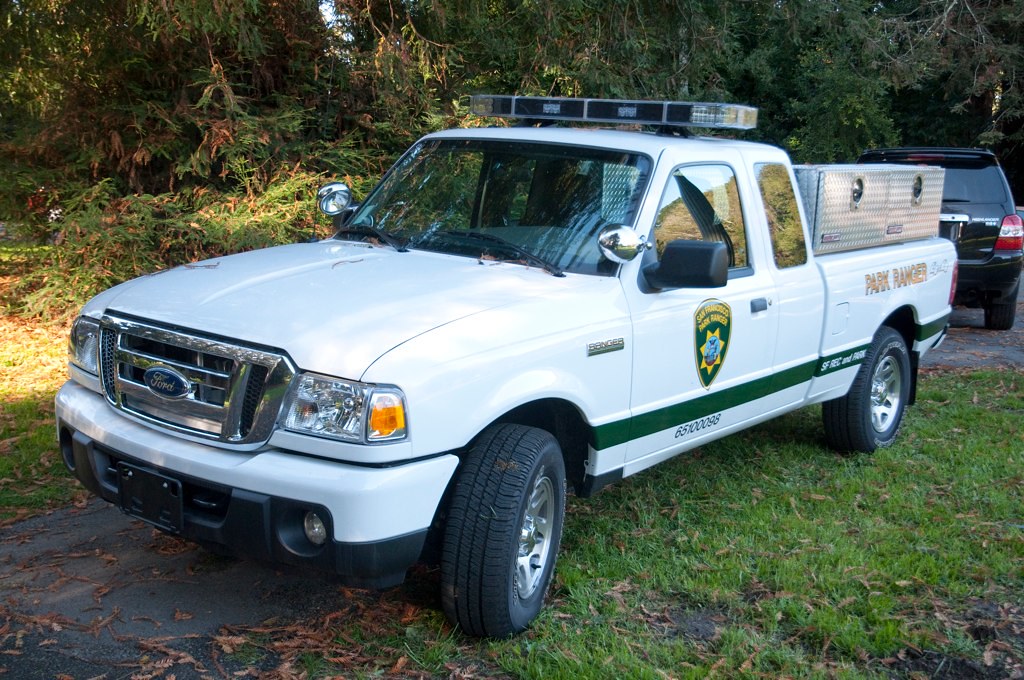To embark on a career as a park ranger, certain foundational steps and qualifications are indispensable. A valid driver’s license is typically crucial, as rangers need to traverse various terrains within their parks. Moreover, while U.S. citizenship is often a prerequisite, some parks may also hire permanent residents. It’s important to note that armed park roles may have more stringent requirements, including a thorough assessment of candidates with any tattoos, to ensure they are not deemed offensive or inappropriate for a uniformed position.
Prospective park rangers should be ready to undergo a comprehensive selection process, which includes evaluations of physical fitness, character, and education. While some positions may not mandate postsecondary education, it is increasingly favored. Whether you are aiming for a role in conservation, education, or law enforcement, your candidacy will be strengthened by a relevant educational background and a strong commitment to environmental stewardship and public service.
Park ranger candidates should also be mindful that certain disqualifications may apply. For instance, having a criminal record or a history of substance abuse can impede your ability to secure a position, particularly in law enforcement capacities. Additionally, the presence of visible tattoos that are deemed offensive may not be compatible with the image of the park service, warranting careful consideration by those seeking to enter the field.
Understanding the Role of a Park Ranger
Park rangers serve a vital role in protecting and preserving our natural resources. On a daily basis, they engage with the public, manage natural habitats, and ensure the safety and enjoyment of park visitors. Their multifaceted job is fundamental to the maintenance and operation of our national and state parks.
Key Responsibilities and Job Duties
As guardians of our parks, the key responsibilities of park rangers encompass a broad spectrum of duties. They ensure public safety, akin to a police officer, with some rangers even holding powers similar to a game warden, enforcing hunting and fishing regulations. They conduct search and rescue operations, provide educational programs, manage wildfires, and protect wildlife, all while maintaining the delicate balance between nature preservation and public access.
The Distinction Between Different Ranger Types
There are various types of park rangers, each specializing in different aspects of park management. Some may work primarily within national or state parks, focusing on either education, conservation, or law enforcement, depending on their training and the needs of the park.
• Educators And Interpreters
Educators and interpreters are vital to a park’s mission, providing visitors with insights into the park’s natural and cultural history. They design and deliver interpretive programs, lead guided tours, and develop educational materials that help deepen the public’s connection with the environment.
• Law Enforcement Rangers
Law enforcement rangers are sworn officers responsible for upholding the law within park boundaries. They patrol the parks, conduct investigations, engage in emergency response, and ensure the protection of visitors, resources, and park assets. Their role is crucial in maintaining order and safety in these cherished natural spaces.
• Naturalists and Conservation Specialists
Naturalists and conservation specialists focus on the scientific aspects of park management, studying wildlife, guiding conservation efforts, and working on habitat restoration projects. They often engage in research and collaborate with other environmental experts to foster biodiversity and ecological health within the park’s confines.

Educational Pathways to Become a Park Ranger
The journey to becoming a park ranger often begins with a solid educational foundation. Pursuing a degree in fields like outdoor recreation, environmental science, or wildlife management can equip you with the knowledge needed for this career. Understanding the natural and cultural resources you’ll protect is critical, and while the average salary for rangers may vary, the fulfillment from a career in conservation is unparalleled.
• Degree Requirements and Recommended Fields of Study
Aspiring park rangers typically need a bachelor’s degree in biology, environmental science, or a related field. Specialized roles, such as state park rangers, may require additional law enforcement training. Degrees that focus on the management of parks and forests, offered by departments of conservation and natural resources, align well with park ranger roles, providing the necessary expertise to excel in this career.
• The Value of Volunteering and Internships in Parks
While a college degree lays the academic groundwork, hands-on experience is equally valuable. Volunteering and internships with state parks departments can lead to entry-level positions and provide practical skills that are critical for a successful career in park services. These experiences can be pivotal in understanding the day-to-day operations of park management.
• Internship Programs and Their Benefits
Internship programs with park services offer an immersive experience that can be a deciding factor in landing a park ranger position. They provide a unique opportunity to work alongside experienced professionals, gain valuable field knowledge, and establish a network within the conservation community.
The Hiring Process for Aspiring Park Rangers
The hiring process for becoming a park ranger is competitive and multifaceted. Understanding the steps involved and the expectations of prospective employers is crucial for applicants seeking to navigate the process successfully and secure a position within the parks system.
Steps to Apply for Park Ranger Positions
To apply for park ranger positions, start by identifying openings and understanding the specific requirements of prospective employers. Tailor your resume and cover letter to highlight relevant experience and skills, and be prepared to provide evidence of your qualifications during the application process.
• Pre-Employment Stage
The pre-employment stage for park ranger recruits often involves a comprehensive background investigation, psychological evaluation, and a medical exam. Law enforcement officers and rangers are subject to strict pre-employment processes, including academy training. State parks departments may also require familiarity with local hunting and fishing regulations, and all candidates must complete basic training programs to ensure readiness for the demands of the job.
• Application Submission and Interviews
After submitting your application, the next step is the interview. This is your chance to demonstrate your passion for conservation and your readiness to handle the responsibilities of a park ranger. Prepare to discuss your experience, your approach to problem-solving, and how you can contribute to the park’s mission.
Criteria for Employment and Candidate Selection
To secure a position as a park ranger, candidates must meet strict employment criteria. These include a valid driver’s license, the ability to operate a motor vehicle safely, and often a background check. Agencies look for individuals with a passion for conservation, strong interpersonal skills, and the ability to handle the physical demands of the job. Selection is competitive and based on a combination of education, experience, and performance in assessments that may include physical fitness tests and written exams.
• Minimum Eligibility Requirements
Aspiring park rangers are generally expected to have a high school diploma or equivalent as a baseline requirement. Beyond this, many roles require some form of higher education or specialized training related to natural resource management, environmental education, or law enforcement. Age requirements can vary, but typically candidates must be at least 18 or 21 years old.
• Special Considerations for Out-of-State Applicants
Out-of-state applicants may face additional hurdles such as proving residency equivalence or obtaining a state-specific driver’s license. Knowledge of local flora, fauna, geography, and regional environmental issues can be crucial, so out-of-state candidates should demonstrate their willingness and ability to familiarize themselves with the local ecosystem and conservation challenges.

Essential Certifications and Skills
If you’re interested in becoming a park ranger, certain certifications are essential. Among them are CPR certification and first aid, which are critical for responding to emergencies in remote settings. Skills such as effective communication, public speaking, and a deep understanding of national recreation and conservation principles are also invaluable for success in this field.
Adult And Pediatric First Aid/CPR/AED
As a park ranger, you will be responsible for the safety of visitors, which includes being proficient in adult and pediatric first aid, CPR, and the use of an AED. These life-saving skills are often a requirement for the job, as rangers are typically the first responders in the event of an emergency in park settings.
Law Enforcement and Emergency Response Training
Park rangers who serve in a law enforcement capacity are required to complete a law enforcement academy program. This rigorous training equips rangers with the skills needed to enforce park regulations, respond to public safety incidents, and effectively manage emergencies including search and rescue operations and wildfire response.
Park Ranger Recruit Training Programs
For park ranger recruits, academy training is a comprehensive introduction to the essentials of the job. This includes learning about hunting and fishing regulations, fire prevention, and environmental conservation practices. Recruits are trained to understand the balance between protecting natural resources and providing a safe, enjoyable experience for park visitors.
• Sponsored Candidates Advancement
Sponsored candidates often benefit from structured training programs that pave the way for advancement. These individuals typically have their academy tuition covered by their sponsoring agency and may receive law enforcement training alongside their sponsorship, positioning them favorably for future growth within the organization.
• Non-sponsored Candidates Advancement
Non-sponsored candidates, those without agency backing, may still advance to commissioned law enforcement roles. By demonstrating exceptional skills and knowledge, they can work their way up through the ranks, often starting in non-law enforcement capacities before transitioning to roles with greater responsibilities.
Career Advancement and Job Outlook
The job outlook for park rangers is positive, with opportunities in public safety and conservation growing. Those with experience as a police officer or game warden may find their skills particularly transferable to the multidisciplinary nature of park ranger roles, enhancing their career advancement prospects.
Entry-Level to Senior Positions
For those just starting out, entry-level park ranger positions can lead to a fulfilling career path with the potential for advancement to senior roles. Demonstrating dedication, gaining specialized knowledge, and building a strong rapport with prospective employers are key steps in climbing the career ladder in this field.
Opportunities for Veterans in Park Services
Veterans may find rewarding careers in park services, with their background often aligning well with the demands of the job. The hiring process for veterans typically includes a background investigation, psychological evaluation, and medical exam. Eligible veterans with experience in outdoor education centers or similar fields may receive preference for park ranger positions, and having a valid driver’s license is a must.
Special Programs and Hiring Initiatives
Park services often promote special hiring initiatives to attract diverse talent and fill specific needs within the parks. These initiatives may target recent graduates, veterans, or underrepresented groups, offering unique opportunities to join the ranks of park rangers and contribute to the preservation and enjoyment of public lands.
Working Conditions and Lifestyle Considerations
As a park ranger, you’ll experience a unique lifestyle that requires adaptability and a love for the outdoors. Working on a daily basis in diverse environments, park rangers must be prepared for varying weather conditions and the physical challenges that come with patrolling and maintaining vast natural landscapes.
The Unique Environment Park Rangers Work In
Park rangers operate in a variety of settings, from nature centers to rugged backcountry trails. They may serve as tour guides, manage visitor centers, and ensure the safety and preservation of public lands. This career is not just a job; it’s a commitment to protecting the environment while facilitating public enjoyment of our nation’s natural treasures.
Benefits of a Career as a Park Ranger
Stepping into the boots of a park ranger offers a unique blend of adventure and service. You’ll be immersed in nature, contributing to the preservation of our nation’s natural treasures. The rewards reach beyond the scenic views; you’ll interact with a community of like-minded individuals passionate about the outdoors. This role provides a sense of accomplishment as you educate the public and protect wildlife. Plus, the application process offers a clear path to engage with this fulfilling career.
Challenges Faced by Park Rangers
While the perks of the job are numerous, park rangers face their fair share of challenges. From confronting wildlife and dealing with unpredictable weather to ensuring visitor safety, the role demands constant vigilance. Rangers must balance their love for the outdoors with the responsibilities of law enforcement and emergency response. This career is not just a walk in the park; it’s a commitment to stewardship, often requiring sacrifice and resilience in the face of adversity.

Salary Expectations and Employment Benefits
As you embark on your park ranger journey, it’s important to consider the financial and professional rewards. The occupation provides competitive salary packages, and you can expect comprehensive employment benefits. These benefits include health insurance, retirement plans, and often, on-the-job training, which equips you with the necessary skills to excel in your role and advance your career.
Compensation Ranges and Salary Progression
The compensation for park rangers varies based on location, experience, and the specific agency. Entry-level positions may start with modest pay, but as you gain experience, the average salary grows. Outdoor recreation and conservation professionals can see salary progression as they advance into senior roles. Pay increases often reflect the level of responsibility and the complexity of the tasks undertaken in safeguarding our parks and wilderness areas.
Health, Retirement, and Additional Perks
Park rangers with a bachelor’s degree often find themselves eligible for positions with better benefits. In Washington State, commissioned law enforcement rangers receive comprehensive health care plans, retirement options, and other perks. Additional benefits may include support in dealing with domestic violence, substance abuse programs for combating illegal drugs, and continuous professional development opportunities to ensure rangers stay at the forefront of conservation and law enforcement.
Answering Common Questions About Park Ranger Careers
One of the most frequent inquiries concerns the application process. It’s a structured path that involves meeting eligibility requirements, completing necessary training, and passing a series of evaluations. The process is designed to ensure candidates are well-suited for the multifaceted role of a park ranger.
Working Hours and Seasonal Changes
The life of a park ranger is governed by the rhythms of nature, which means working hours and duties shift with the seasons. Summer might entail longer days filled with visitor interactions, while winter could focus more on conservation projects. Flexibility is key, as you’ll need to adapt to varying schedules, including weekends and holidays, to meet the demands of the park and its wildlife.
Differences Between Park Rangers and Forest Rangers
Park rangers and forest rangers are often confused, but their roles are distinct. Park rangers typically work within national or state parks, focusing on visitor services, education, and resource protection. Forest rangers, on the other hand, might concentrate on broader natural resource management, including wildfire suppression and land management. Both careers require a dedication to conservation efforts and a deep appreciation for the natural environment.
Preparing for a Park Ranger Career
To set forth on the ranger path, you’ll need a solid foundation. This involves familiarizing yourself with the average salary and the range of duties you may perform. Understanding the role’s intricacies will help you prepare for the rewarding challenges ahead.
Resources and Strategies for Aspiring Rangers
As you gear up for a career as a park ranger, it’s crucial to stay informed about the latest trends and resources. Keep an eye on the average salary to set realistic expectations. Utilize online forums, government websites, and networking events to connect with professionals in the field. These resources will provide valuable insights into the profession and help you carve out your path in the world of park services.
Job Announcement Notifications and Where to Find Them
Staying abreast of job openings is essential for aspiring park rangers. Opportunities are often posted on government career portals, conservation organization websites, and job boards. Setting up alerts for park ranger positions ensures you don’t miss out on application deadlines and can be one of the first to apply for newly announced roles.
Understanding the Role of Diversity in Park Services
Diversity is a cornerstone in park services, with an increasing emphasis on inclusive representation. Park ranger positions now aim to reflect the diverse populations they serve, fostering an environment where all visitors feel welcome. This includes ensuring teams are equipped with the necessary protective equipment and training to engage with a wide range of cultures and communities, enhancing the resource protection efforts of our parks.
Conclusion: Park Ranger Requirements
Stepping into the role of a park ranger is much more than a career choice; it’s a life dedicated to the stewardship of some of the most treasured recreational areas in the nation. Whether you’re patrolling the scenic wonders along a ridge parkway or educating visitors about the intricate ecosystems within a national historic park, you uphold the essential functions that keep these sacred spaces available and enjoyable for all. It’s a path that not only demands a diverse skill set but also a heart that beats in unison with the natural world.
As a park ranger, you become the guardian of history and biodiversity. You’ll find yourself immersed in landscapes where historical parks tell the stories of our nation’s past and where every rock, plant, and creature plays a part in a larger environmental tapestry. The work can be as challenging as it is rewarding, but as you embrace the call of the wild, the impact of your efforts will resonate with every hiker, camper, and nature lover who finds solace and inspiration in these spaces.
Your journey as a park ranger will be unique, defined by the tracks you leave on the trail and the legacy you contribute to the preservation of our natural and historical treasures. With each step, you answer a call that asks for both passion and professionalism, ensuring that the wild’s call continues to resonate through generations to come. So lace up your boots, don the ranger hat, and prepare to become an integral part of the tapestry that is America’s natural heritage.





